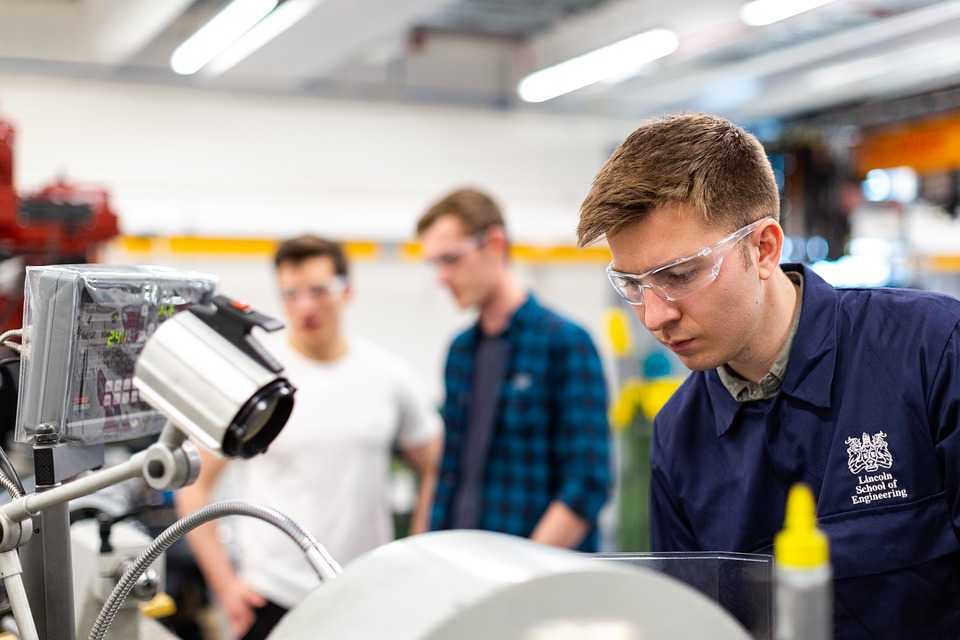
Mechanical Engineer
Mechanical engineering involves broad training around the design and building of machines and their components using engineering concepts. Mechanical engineers operate in a wide range of sectors, conceiving, developing, and fabricating devices and their parts.
Even though it is among the oldest engineering specialties, it continues to evolve and expand as technology advances, making it a dynamic and exciting career path to pursue even today. To keep everything functioning correctly, you can outsource your engineering to assist with the numerous precise parts and motions.
Putting together something as complicated as a vehicle requires many hands and machinery, but thankfully, most engineers take on such complexities with fun and sound approach. Below are different types of mechanical engineers and their roles in mechanical engineering companies.
Acoustic Engineers
Acoustics engineers are experts in the design and development of sound-related technology. They may, for example, use basic scientific concepts to figure out how to monitor and adjust sound levels or enhance sound clarity.
Acoustic engineers can focus on noise control, architectural acoustics, underwater acoustics, or structural acoustics, based on their field of interest within the discipline. They often collaborate with architects on construction designers. They may also work in factories and other industrial settings to reduce noise.
Aerospace Engineers
Military and commercial spacecraft and aircraft are designed, tested, repaired, and improved by aerospace engineers. This field of engineering has two branches, that is spacecraft and airplane development. Aeronautical engineers handle the development of airplanes, while spacecraft engineers handle the development of spacecraft.
Moreover, aerospace engineers play a crucial role in fostering strong relationships with suppliers and can serve as the link to procurement contractors such as this trusted supply chain partner that sources and supplies military aircraft parts and accessories. Aerospace engineers also actively collaborate with procurers to ensure that aircraft parts are delivered on time and meet the exact specifications required for intricate aerospace systems.
As a result of the intricacy involved, aerospace engineers work in diverse teams of experts in avionics, material science, aerodynamics, propulsion, structural analysis, and propulsion.
Automotive Engineers
Automotive engineers are responsible for the production, manufacturing, and development of different types of road vehicles. Under this discipline, they can major in fuel economy, automotive electronics, safety engineering, and quality management.
Marine Engineer
Marine engineers are in charge of designing and building water vessels and infrastructure- accentuating their internal systems. They design the environmental, propulsion, and onboard electrical systems. To put it simply, they are responsible for anything aboard, from offshore platforms to cruise ships.
Water is probably the most demanding environment on the planet. Special knowledge and experience are needed to design and construct boats and buildings that can resist waves, salt exposure, and winds. The ocean-going technical wonders developed by marine engineers are mainly responsible for the contemporary world’s worldwide trade.
Marine engineers are also responsible for ensuring the safety of the water vessels’ personnel and travelers. Marine engineers often set new marks and develop new technologies as well.
Mechanical Engineer
Mechanical engineering is a vast and diverse subject that is anything but straightforward. Mechanical engineers focus on designing, analyzing, producing, and management of mechanical equipment.
Mechanical engineers are knowledgeable in material science, thermodynamics, and structural analysis. Thus, they can handle anything from industrial and factory machinery to cooling and heating systems, weapons, or just about any kind of machinery.
Mechatronics Engineer
A mechatronics engineer is in charge of the design, development, and operation of smart systems and products resulting from the combination of software and hardware applications. This industry is also referred to as Asset Management.
Also, mechatronics engineers are responsible for creating industrial solutions through electrical and mechanical solutions or computer applications. They create products by merging diverse technologies to streamline applications and operations in areas such as undersea exploration.
To enhance efficiency, mechatronics engineers design and analyze industrial production lines that combine production with technology. Furthermore, they maintain and enhance industrial designs and procedures, for instance, in robot cleaner applications.
Mechatronic engineers have traditionally worked in processing plants, labs, and engineering offices in collaboration with manufacturing businesses, product developers, forestry, and mining firms. They also collaborate with government agencies, research institutes, military and aerospace companies, and power plants.
Their expertise is also needed in the aerospace, consumer goods, automotive industries, and technology companies that produce software components and gadgets.
Railway Engineer
A railway engineer’s role involves giving a technical perspective into railway engineering projects for various systems.
Railway engineers supervise the design and modeling of railway systems, offer assistance with technical rail problems or failures, and use computer software to design concepts for railway systems.
Beyond that, they are responsible for putting forward research, reports, calculations, and simulations to support business choices.
They also usually provide engineering advice to other team members to ensure safety and legal compliance within a working environment and partner with other designers and engineers to solve system problems.






